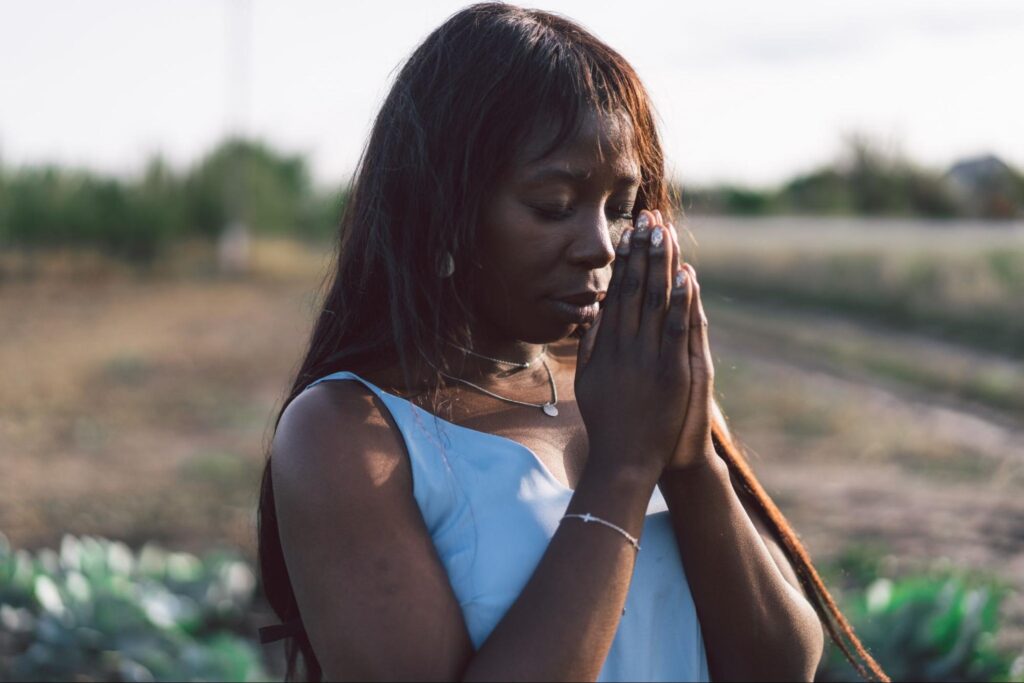Some people seek peace by altering their surroundings, while others find it by adjusting their daily routines. Spiritual health and wellness are not exclusive to the deeply religious or those who are perpetually calm; they are within reach of anyone willing to engage in sincere introspection. These qualities provide a stable core in a world that often tugs us in various directions. They are not a product of wishful thinking, but of daily decisions that resonate with your true self.
What Spiritual Health and Wellness Mean
Spiritual health and wellness refer to a person’s sense of meaning, purpose, and connection, whether through faith, values, inner peace, or personal beliefs. It’s about feeling grounded, aligned with your core principles, and able to navigate life with clarity and resilience. Finding peace and balance, knowing what truly matters, and staying centered during challenges all stem from this inner alignment. Understanding this foundation helps you build daily practices that feel real, not forced.
Defining Spiritual Health in Real Life
Spiritual health is your sense of peace and direction. It reflects how in tune you are with your values and emotions. You don’t have to follow a specific faith to develop it. It might show up in how you treat others, how you reflect, or what gives you purpose. It reminds you who you are when the world moves too fast.
Why Wellness Needs the Spiritual Component
Physical and mental wellness often get the spotlight, but are incomplete without spiritual grounding. When life throws unexpected challenges, spiritual health helps you stay steady. It strengthens your ability to accept change, sit with discomfort, and grow. That brings depth, not just doing well but feeling whole. Without it, wellness feels hollow.
Daily Mindfulness for Spiritual Health and Wellness
Mindfulness connects the body, mind, and spirit through presence. It turns ordinary moments into anchors that center you. Practiced daily, it builds awareness and resilience that fuel spiritual wellness. It’s less about technique and more about showing up fully, even for a breath.
Mindful Breathing That Grounds You Every Day
Taking a few slow, conscious breaths sounds simple but powerful. It tells your nervous system you’re safe and present. This short pause can redirect stress and bring your awareness inward. Over time, your body associates this breathwork with calm and clarity. That’s how a basic habit starts shaping a more rooted day.
Morning Stillness to Set the Tone
Before the demands begin, a few quiet moments can guide your day. You might sit silently, sip tea without distractions, or listen to ambient sounds. It helps you check how you feel before the world floods in. It’s a subtle act that reshapes how you approach everything else. The stillness doesn’t solve your problems, but it sharpens your presence.
Observing Without Judgment as a Habit
Not every thought needs a reaction. Watching your inner chatter without labeling it good or bad changes your relationship with your mind. It teaches patience and gives you space before you act. Over time, this reduces emotional reactivity and builds self-trust. The practice doesn’t require silence, just honest attention.
Daily Habits That Deepen Spiritual Health and Wellness
Everyday choices shape the core of our inner well-being. When our routines align with what truly matters, clarity follows. These habits don’t need to be complex; they need to be authentic. The following are practical ways to build that inner alignment day after day, empowering you to take control of your spiritual wellness.
Intentional Connection With Self and Others
Spiritual health thrives in connection, not just to others, but to yourself. Being deeply honest, reflective, and vulnerable invites authenticity. It allows you to show up more grounded in relationships and alone. These daily habits help strengthen that kind of depth.

Journaling for Awareness, Clarity, and Perspective
Writing helps you see your thoughts. It slows down the noise and makes space for insight. You don’t need prompts or structure, just honesty. Some days it’s a list; others, it’s a letter to yourself. Over time, journaling becomes a personal mirror.
Meaningful Conversations That Feed the Soul
Not every talk has to be deep, but an honest connection matters. Spiritual wellness grows through shared vulnerability. Talk about purpose, values, or memories that shaped you. Ask and listen with presence, not just politeness. That’s where real bonds form.
Listening Without Fixing or Controlling
When someone speaks, it’s tempting to advise or fix. But genuine spiritual connection often comes from being fully heard. Listening without an agenda deepens relationships. It reflects respect, care, and non-attachment, which can heal both people.
Creating Spiritual Rituals That Stick
Rituals give rhythm to our lives. They’re not about ceremony, but about meaning. When you repeat actions with intention, they become grounded. Spiritual health grows stronger through consistent, conscious behaviors.
Making Time for Silence and Solitude
Solitude isn’t loneliness; it’s a return to yourself. In quiet moments, your honest thoughts rise to the surface. You start to notice patterns you usually overlook. Even ten minutes of silence can soften internal noise. That space creates clarity and calm.
Daily Gratitude That Doesn’t Feel Forced
Gratitude doesn’t need a list of ten things. It can be a whispered thank you or a silent nod. What matters is noticing moments that spark appreciation. Over time, your brain begins to automatically scan for these moments. This shift changes how you experience your day, making you more positive and resilient.
Small Acts of Kindness With Big Impact
Kindness is not just for others; it reinforces your values and reminds you of who you want to be. Even small gestures can ripple through your mood and mindset. Holding a door or offering a genuine compliment creates a subtle shift. That energy feeds your spirit, inspiring you to continue these acts of kindness.
Movement and Nature for Spiritual Wellness
Spiritual wellness doesn’t only come from stillness. Movement and nature bring energy back to the body and soul. They invite you to connect without screens or structure. These practices open new doors to presence and clarity.
Walking With Awareness, Not Distraction
A walk isn’t just exercise; it can be a ritual. Try leaving your phone behind and noticing your surroundings. Each step can feel like a rhythm that calms the mind. Thoughts will rise and fall, but you stay rooted. That movement becomes a gentle form of meditation.
Getting Outside, Even for Five Minutes
Natural light and fresh air shift your energy. You don’t need a forest; your backyard or a balcony will do. Let the breeze hit your skin, and your breath slow down. Just being outside can break cycles of overthinking. Nature has a way of realigning what feels off.
Letting Nature Teach You to Slow Down
Watch how trees grow without rushing. Notice how rivers move around obstacles instead of fighting them. These observations offer metaphors for your own pace. Slowing down isn’t failure; it’s rhythm. Nature models that rhythm without needing to explain it.

Protecting Your Energy and Setting Boundaries
Spiritual health needs space to breathe. That space often gets crowded by guilt, pressure, or overstimulation. Daily boundaries protect your energy and restore balance. They aren’t walls; they’re choices.
Saying No Without Guilt
You’re not selfish for protecting your peace. Saying no creates room for what matters. It’s uncomfortable at first, but empowering over time. People will adjust when you lead with clarity. Your “no” is also a “yes” to what keeps you whole.
Choosing What You Let Into Your Space
What you read, watch, and listen to matters. Noise can add up and impact your mood and focus. Start noticing how you feel after digital input. Curate your space like you would a home. Make it both nourishing and entertaining.
Creating a Calming Environment on Purpose
Your physical space reflects your mental state. Small touches, such as soft light, tidy corners, or calming scents, can affect your feelings. You don’t need a new house; it’s an intentional arrangement. When your environment soothes you, reflection comes more easily. That’s spiritual health in your surroundings.
Practices That Align With Personal Beliefs
Spirituality is personal. What works for one person may feel empty to another. The key is choosing daily actions that reflect your beliefs. They become grounding because they’re yours.
Prayer, Meditation, or Sacred Text Reading
Prayer is speaking; meditation is listening. Both invite deeper awareness. Reading sacred texts offers guidance through stories or teachings. Choose what resonates with your belief system. These daily habits become steadying rituals over time.
Time in a Community With Shared Values
Spiritual health also grows in shared spaces. Being around others with similar values reinforces your intentions and aligns you with like-minded individuals. It could be a small circle or a larger community. A regular connection in those spaces fosters trust and meaning. You feel supported, not isolated.
Private Rituals That Stay Meaningful
Not everything needs to be shared. Some of your strongest spiritual habits might stay personal. Lighting a candle, repeating affirmations, or offering silent thanks can ground you. These moments remind you of your journey. That privacy adds power.
Why Consistency Matters for Spiritual Health and Wellness
Consistency doesn’t mean perfection. It means choosing presence over autopilot time and again. Spiritual wellness deepens over time, not all at once. These practices are most effective when you return to them daily, even in small ways.
Small Steps Lead to Deeper Roots
Significant breakthroughs get attention, but small steps build strength. A two-minute ritual, done daily, carries more weight than rare intensity. You start to notice changes in how you react and relate. That shift is quiet but deep. It’s a rhythm, not a rush.
Rituals Build Resilience
When life feels chaotic, your daily practices become anchors. You don’t have to think because they’re already part of your routine. That structure brings comfort and focus. Resilience isn’t a trait, but a habit formed over time. Spiritual health strengthens from repetition.
Show Up for Yourself First
Spiritual habits are a form of self-respect. You take time, not just give it. You listen to yourself before the world speaks. That choice shifts your energy for the day. It reminds you that your inner world comes first.
Strengthen Spiritual Health and Wellness With Intention Today
The peace you’re searching for is already within reach. Each habit you build is a quiet vote for the kind of life you want to lead. What you repeat shapes what you believe, and what you think shapes your life. Start with one practice that speaks to you, and commit to it daily. Small, honest actions done with purpose will take you farther than waiting for the perfect moment.
Want fundamental tools for a deeper, centered life? Find more thoughtful articles on The Living Church San Francisco blog and stay connected to what matters.



